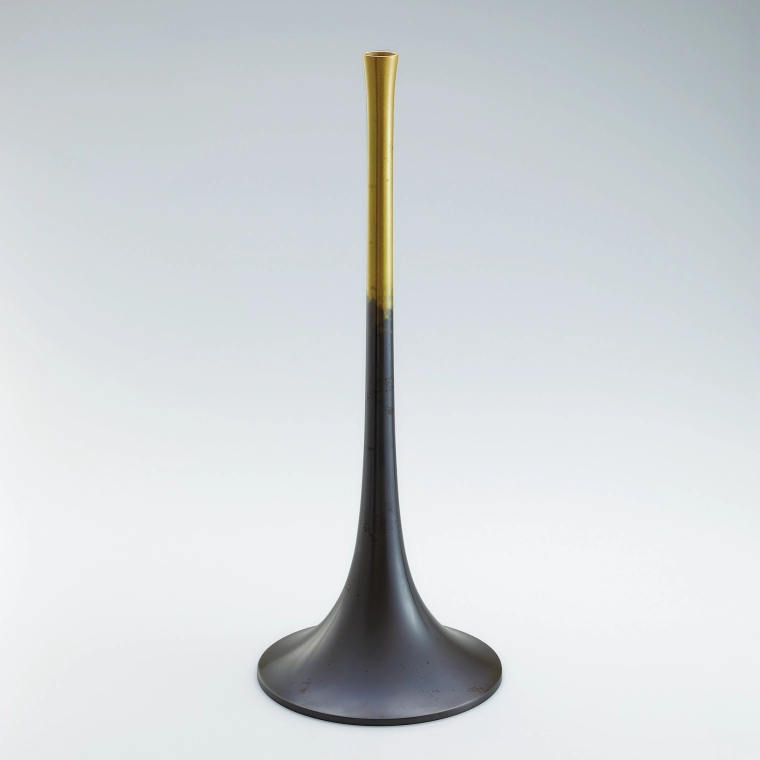Large bud vase cast in two different metals.
H 59.0 / ø 23.0 cm,Year.2020- according to today's currency rate
- shipping fees not included
Tamotsu Hannya
1941 -- Metalwork
-
Price Range
$7,000 - 28,000
Info
The prices of the artworks on Gallery Japan are determined by the artists themselves and are published directly on the website.
close - Awards at Japan Kōgei Assoc. Exhibitions : 4
About the Artwork
By pouring melted black copper and brass into the mold using the fukiwake casting method, the two metals mix and create a complicated, mysterious pattern. The patterns are made due to different conditions, so no two pieces are exactly the same.
The casting mold was made in a traditional way called sogata casting. The mold is made with clay and sand, patterns are drawn on the inner side of the mold before it becomes dry, and the mold is then baked. A smaller mold is placed inside the patterned mold, and melted metal is poured in between the outer mold and inner mold.
Description
-
CategoryMetalwork
-
MaterialsBrass, Copper alloy
-
DimensionsH 59.0 / ø 23.0 cm
-
Year presented2020
-
RarityUnique
-
Paulownia BoxIncluded
Techniques Used
Multiple metal casting
Multiple metal casting (fukiwake) is a technique in which two or more different types of molten metal are cast together in the same mold. The metals are added consecutively and produce works with elegant, flowing patterns.
Selected exhibitions
- The 67th Japan Traditional Kōgei Exhibition (2020)
- Selected

